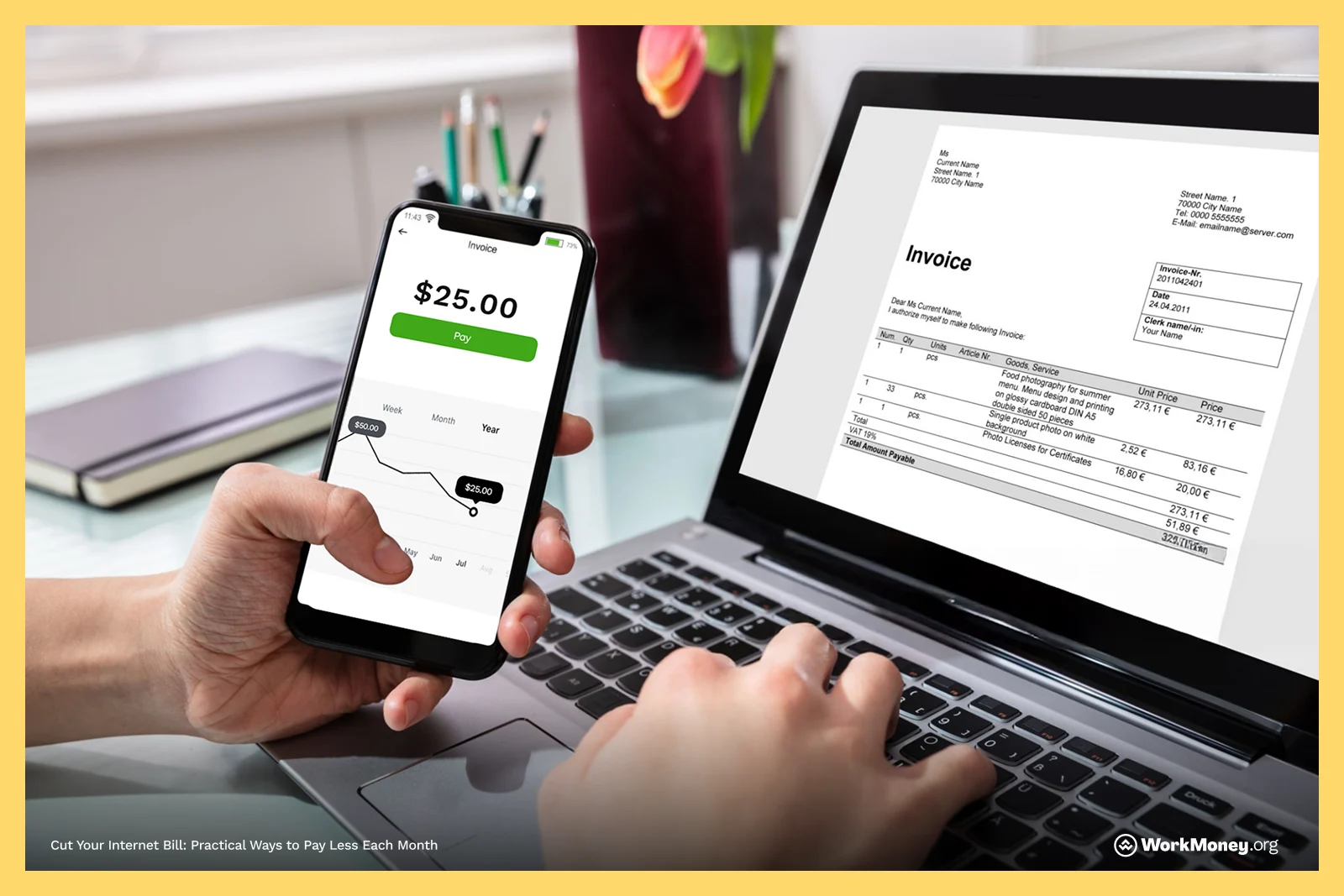Cut Your Internet Bill: Practical Ways to Pay Less Each Month
Win rate fights with providers, find hidden low-cost plans, and use real negotiation scripts to shrink your monthly internet bill without losing speed.

For the majority of American households, paying for internet services isn’t optional anymore—it’s essential for work, school, and everyday life. Unfortunately, internet prices are soaring and many consumers are finding their already stretched thin budgets can’t keep up.
The WorkMoney team is dedicated to finding readers ways to save on internet costs, along with the laundry list of other utilities you may have. Let's look at quick, proven ways to shrink your bill without sacrificing speed. From negotiation scripts to free router programs, here’s how to lower your utility bill and fight back—fast.

Quick Wins: Slash Your Bill This Month
Saving money on recurring expenses like your internet bill is key if you want to reduce your spending. The good news is, saving money on this isn’t as hard as it sounds. In many cases, you may be able to start saving today.
The Takeaway: You Can Start Saving Today
You don’t have to settle for creeping prices and surprise fees. Even better, you have options for getting your internet spending down to a price you’re happy with. To cut your bill this month—and keep it low for good—consider negotiating a better rate, buy your own hardware, and look for financial assistance programs that may be a good fit for your family.
About the Author

Jacqueline DeMarco
Jacqueline DeMarco is a seasoned personal finance writer with over seven years of expertise covering important financial topics like credit cards, budgeting, banking, and insurance. Her work has been featured by top financial brands and publications, including Newsweek, Fortune, USA TODAY Blueprint, Bankrate, CreditCards.com, SoFi, and Northwestern Mutual.
